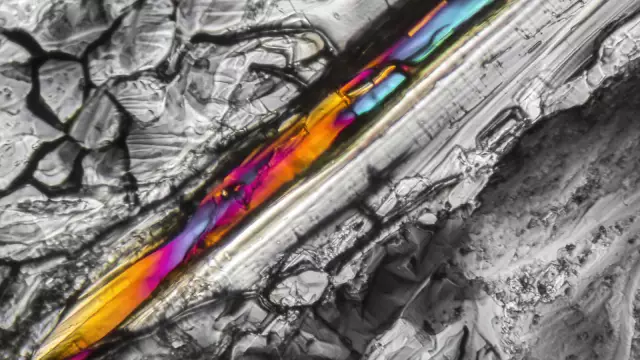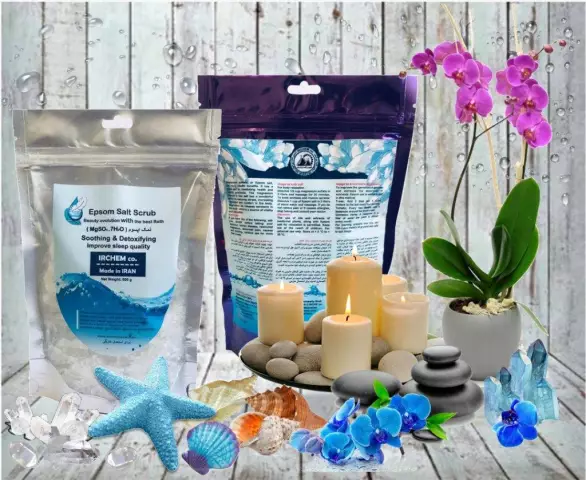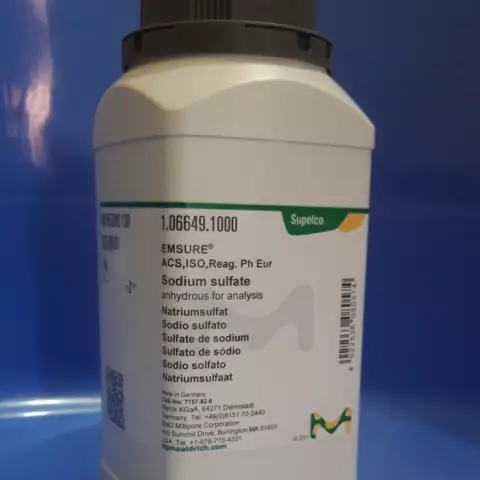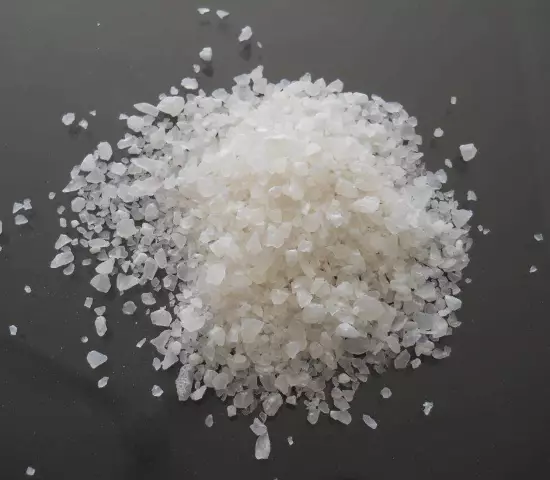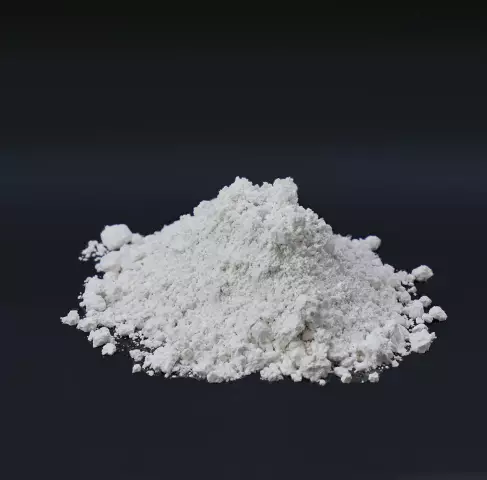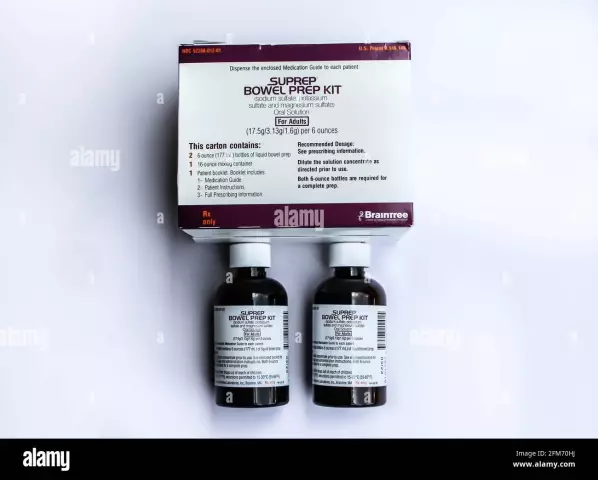- Author Rachel Wainwright [email protected].
- Public 2023-12-15 07:39.
- Last modified 2025-11-02 20:14.
Ammonium sulfate

Ammonium sulfate is an ammonium inorganic salt of sulfuric acid containing 21% nitrogen in the form of ammonium cations and 24% sulfur in the form of sulfate anions. Ammonium sulfate is often used as a fertilizer for alkaline soils.
Ammonium sulfate occurs in the form of colorless crystals or small white hygroscopic granules.
Ammonium sulfate, also known as diammonium sulfate or sulfuric acid, is an odorless, white crystalline solid that tastes salty. The compound is readily soluble in water, but not soluble in alcohol or acetone.
Obtaining ammonium sulfate in laboratory conditions is possible by the action of concentrated sulfuric acid 2NH3 on a concentrated solution of H2SO4.
It is also possible to obtain ammonium sulfate by introducing gaseous ammonia into hot gases.
Ammonium sulfate decomposes when heated to 250 ° C. If the substance is heated to a higher temperature, then it decomposes into ammonia, nitrogen, sulfur dioxide and water.
Ammonium sulfate applications
The main use of ammonium sulfate is as a fertilizer for alkaline soil. In the soil, ammonium sulfate ions are released and form a small amount of acid, which lowers the soil and at the same time saturates the necessary nitrogen for better plant growth. The main disadvantage of using ammonium sulfate is the low nitrogen content compared to ammonium nitrate.
It is also widely known to use ammonium sulfate as an agricultural spray and adjuvant for water-soluble insecticides, herbicides and fungicides. It functions as a binder for iron and calcium cations, which are present in water and plant cells. The substance is especially effective as an adjuvant for glyphosate and glufosinate herbicides.
In biochemistry, reprecipitation with ammonium sulfate is a method for purifying proteins. Ammonium sulfate is soluble in water and therefore it is possible to create concentrated solutions on its basis that can purify proteins, causing their concentrated precipitation. It is a convenient and easy way to fractionate complex protein mixtures, which makes ammonium sulfate an ingredient in many diphtheria, tetanus and pertussis vaccines.
In the food industry, ammonium sulfate is used as a food additive E517, which is used as an acidity regulator for flour and bread and is recognized as safe for consumption.
Also, ammonium sulfate is used to obtain other ammonium salts, in particular ammonium persulfate.
Homemade explosives are made from ammonium sulfate.
Ammonium sulfate is a component of dry powder fire extinguishers and flame retardants.
Ammonium sulfate is very popular in Japan, Southeast Asia, and northeastern China and other rice-growing areas. It is used as a fertilizer for growing rice, tea, herbs, vegetables, fruits and grains. Ammonium sulfate is more effective than carbamide, ammonium bicarbonate, ammonium chloride and ammonium nitrate.

As a feed additive, ammonium sulfate provides non-protein nitrogen nutrients to ruminants. Ammonium sulfate is also used in some areas of fish farming.
Ammonium sulfate properties
Crystalline substance, insoluble in acetone, ethanol and ether.
The density of ammonium sulfate is 1.77 g per 1 ml, the storage temperature is 2-8 ° C, the solubility in water is 77 g per 100 ml.
The main property of ammonium sulfate is its stability, however, on contact with strong oxidants, fire or explosion may occur.
The harm of ammonium sulfate
Inhalation of ammonium sulfate vapors can cause severe irritation and inflammation of the respiratory tract. Ingestion of ammonium sulfate causes gastrointestinal irritation, accompanied by nausea, vomiting, and diarrhea. When ammonium sulfate comes in contact with the skin or eyes, irritation, redness, itching and pain occurs.
The use of ammonium sulfate is safe in well-ventilated areas with goggles and full face masks, boots, gloves, aprons or overalls made of impervious material such as PVC.
Found a mistake in the text? Select it and press Ctrl + Enter.

